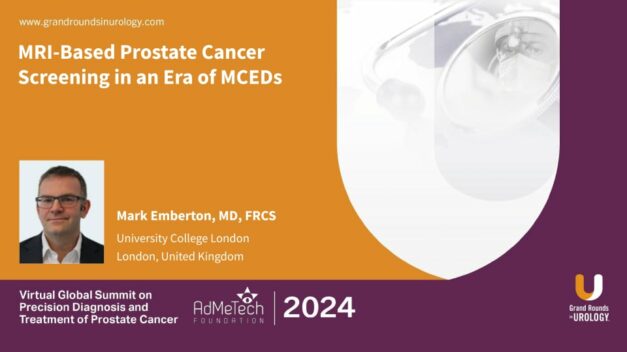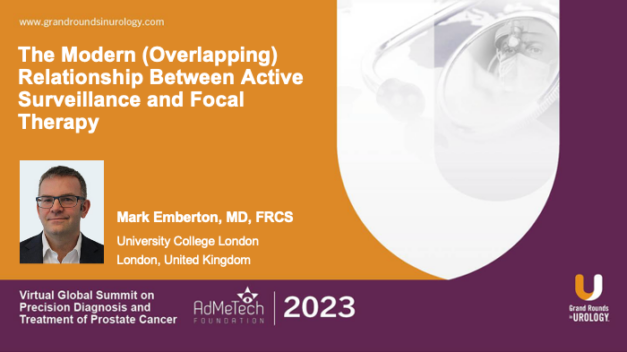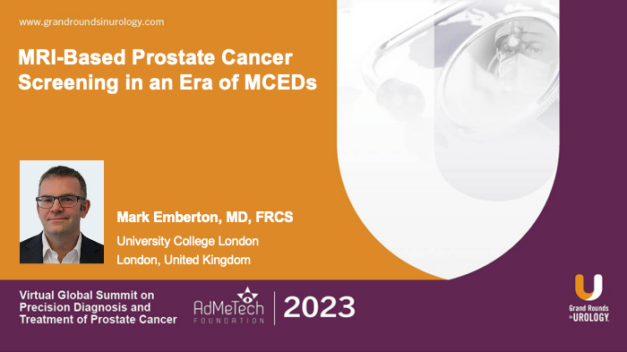MRI-Based Prostate Cancer Screening in an Era of MCEDs
Mark Emberton, MD, FRCS, discusses advancements in prostate cancer screening, emphasizing the limitations of current methods and the potential of innovative approaches.
In this 9-minute presentation, Emberton discusses emerging technologies, such as polygenic risk scoring and advanced biomarkers, that hold promise for enriching high-risk populations. Imaging, particularly bi-parametric MRI, is presented as a leading tool.
Emerton introduces TRANSFORM, a prostate cancer screening study funded by Prostate Cancer UK and the NHS. Developed through a collaborative, multidisciplinary approach, the study incorporates randomization to minimize bias and contamination. Adaptive trial design ensures underperforming methods are replaced, and novel tests can be incorporated as they emerge. Emerton expresses optimism that this innovative approach will shape the future of prostate cancer screening, addressing equity, efficiency, and scientific rigor.
Read More



